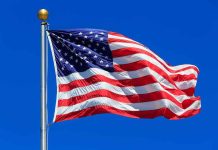
A sweeping lower court ruling is now under fire for allegedly defying the Supreme Court’s ironclad protection of free speech rights secured by the NRA, reigniting conservative concerns about unchecked judicial overreach and the erosion of constitutional liberties.
Story Highlights
- The NRA accuses a lower court of ignoring a major Supreme Court victory for First Amendment rights.
- Regulatory efforts to “financially blacklist” pro-gun groups have triggered a landmark legal battle.
- The Supreme Court unanimously sided with the NRA, but lower courts are now accused of resisting that decision.
- This case broadens free speech protections against government coercion, impacting advocacy across the spectrum.
NRA Challenges Lower Court for Undermining Supreme Court Free Speech Ruling
The National Rifle Association is raising alarms after a lower court decision that, according to the organization, directly contradicts the Supreme Court’s unanimous defense of free speech rights. In October 2025, the NRA announced its intent to ask the Supreme Court to intervene once more, claiming that the lower court failed to follow the constitutional principles established just months ago. This challenge comes on the heels of a monumental Supreme Court win that was expected to put an end to government attempts at suppressing pro-Second Amendment advocacy through regulatory intimidation.
The roots of this dispute stretch back to May 2018, when the NRA filed suit against Maria T. Vullo, then the Superintendent of the New York State Department of Financial Services. The NRA alleged that Vullo, acting with encouragement from former Governor Andrew Cuomo, abused her position to pressure banks and insurers into cutting ties with the organization. The methods described included official “guidance letters” and behind-the-scenes threats—tactics that many conservatives recognize as classic examples of bureaucratic overreach and the weaponization of government power against political opponents.
Supreme Court Sets a Precedent Against Government Coercion of Free Speech
In May 2024, the Supreme Court delivered a unanimous decision in favor of the NRA, finding that government officials cannot use their authority to coerce third parties into suppressing speech they find objectionable. The opinion, authored by Justice Sonia Sotomayor, reaffirmed a six-decade-old principle: any governmental threat or coercion aimed at silencing disfavored viewpoints through private actors squarely violates the First Amendment. This was more than a technical legal victory; it was a rare moment of consensus that even liberal justices recognized the dangers of unchecked regulatory power when targeting political adversaries.
Despite this precedent, the NRA reports that the lower court’s latest action disregards these constitutional guardrails. By allegedly allowing regulators to persist in their campaign against pro-gun advocacy, the court risks making a mockery of the Supreme Court’s unanimous warning that free speech cannot be trampled by bureaucratic fiat. For many in the conservative movement, this episode is a sobering reminder that victories at the highest court are only as strong as their enforcement on the ground.
Wider Implications for Advocacy, Industry, and Constitutional Rights
This legal clash holds profound consequences for more than just gun rights. The Supreme Court’s 2024 decision makes clear that government officials—whether targeting gun groups, religious entities, or environmental advocates—cannot threaten, intimidate, or coerce financial institutions or other private actors into silence. The ruling aims to rebalance the power dynamic, safeguarding all advocacy organizations from being financially isolated by hostile officials. Yet, as the NRA’s ongoing fight illustrates, constitutional victories remain vulnerable if trial courts or regulators refuse to take those principles seriously.
Financial institutions now face clearer constitutional boundaries when pressured by regulators to sever business ties with controversial clients. Advocacy organizations, regardless of ideology, should benefit from the reaffirmed shield against government-orchestrated financial blacklisting. However, the recent lower court resistance has prompted new concerns about the willingness of some judges to sidestep or undermine the Supreme Court’s intent, potentially chilling free speech and emboldening future attempts at government overreach.
Expert Analysis: Enforcement Gaps and the Ongoing Battle for Constitutional Integrity
Legal experts note that the Supreme Court’s decision isn’t just a victory for the NRA or conservatives—it’s a warning to officials at every level: regulatory power must never become a tool for silencing dissent. The fact that a lower court may be resisting this message signals the need for ongoing vigilance among those committed to constitutional government. As this case returns to the nation’s highest court, patriots who value the First Amendment and who oppose bureaucratic overreach are watching closely, determined to ensure that constitutional rights are protected not just in theory, but in daily practice across America’s courts and communities.
For now, the NRA’s challenge stands as a critical test of the Supreme Court’s authority and a rallying point for all who believe that government must never be allowed to intimidate, silence, or punish Americans for their beliefs—no matter how controversial those beliefs may be.
Sources:
Supreme Court Accepts NRA First Amendment Case: A Historic Step Forward for the NRA and Free Speech
Firm Advocates for the NRA in First Amendment Case
Court agrees to hear additional case on gun rights
Gun Rights Group Claims Lower Court Decision ‘Defies’ Major First Amendment Victory At SCOTUS
Gun Rights Group Claims Lower Court Decision Defies Major First Amendment Victory At SCOTUS
Sleeper Supreme Court Decision Could Have Profound Impacts on Trump’s Agenda


